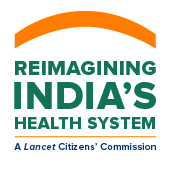In Conversation: Noah Carton-Rossen, MPH candidate in health policy, Harvard T.H. Chan School of Public Health
May 10, 2023

I first started working in research during my undergraduate studies at Elon University, concentrating in Anthropology and Sociology. After graduation, I took a post-baccalaureate research position with the Human Research Area Files at Yale University (HRAF), where I conducted cross-cultural analyses of the ethnographic record. Studying population outcomes across systems led me to pursue the field of public health. I have always been fascinated by different systems of organizing healthcare and public health program delivery. I decided to pursue a Masters degree in health policy to continue to explore ways to maximize health for populations in need.
As a fellow with the Commission, I have been studying the barriers to achieving UHC in India. Specifically, I worked on the coding, qualitative analysis, and writing for The barriers to universal health coverage in India and the strategies to address them: a key informant study manuscript.
Our research suggests that India is lacking a lateral health systems approach to provide all levels of care from preventive medicine through tertiary and specialized care. To fully cover the residents of India, the fragmentation between vertical programs will need to be addressed. The other key is finding the right balance between centralized national control of healthcare and decentralized state control. Finding a way to customize and localize care state to state, where there are varying health needs, is critical to serving the population in need.
I hope the Commission can help the various stakeholders find consensus on an approach to system reform. Sustainable change will only be possible if we can find a unified vision for the future that can capitalize on the strengths of the different sectors and states.
